Reasonable people can disagree on the extent to which more affordable housing would solve the homelessness crisis—some say it would solve it entirely, others say it’s primarily an addiction and mental health crisis that shelter alone cannot fix—but pretty much everyone, in every West Coast city, thinks more affordable housing is at least part of the solution.
Yet affordable housing is such an overused, platitudinous term at this point, hardly anyone knows what it actually means. And if it is to be even a part of the solution to this massive, ongoing crisis, we need to know what it means.
Broadly “affordable housing” is defined as housing that does not exceed 30% of an occupant’s income. (Housing = rent + utilities.) The city’s definition is essentially the same, but it has specific occupants in mind: households that make 60% or less of the area median income. In Portland, this means a single person who earns < $47,400, a family of two who earns < $54,180, a family of three who earns < $60,960 etc. Affordable housing then is any housing that costs no more than 30% of what families at these income levels earn. (Rent for a one-bedroom apartment < $1,269 for a single person, < $1,524 for a household of two, < $1,760 for a household of three etc.)
If you don’t find this to be a very helpful definition, you’re not the only one. That is why we made an illustrated glossary, with real-life examples, of what affordable housing actually looks like in its five most common forms:
I had a lot of questions while I was reporting this story: Why are there so many vacancies at an affordable (and, to me, adorable) apartment building in a neighborhood housing economists would call “high opportunity”? (I didn’t see any illicit drug activity nearby, and if there was, it likely wouldn’t be more than any other part of this city.) Do we need more affordable housing or is it that we need more deeply affordable housing (for households < 30% of the AMI) or both? Most importantly, what kind of affordable housing is the most effective for the people who need it and the most efficient for the people who pay for it? Multnomah County seems to be principally concerned with how many people stay housed, but there are also other results worth considering: What kind of affordable housing has the best health outcomes for residents? How many people in Permanent Supportive Housing utilize the services that are offered and which ones are the most helpful? A staff member at Findley Commons estimated that 80-90% of residents there struggled with substance abuse—will the supportive services there help them recover or no? There’s this study from the National Library of Medicine that (sadly) “found no substantial evidence that PSH contributes to improved health outcomes, notwithstanding the intuitive logic that it should do so and limited data showing that it does do so for persons with HIV/AIDS,” but it also conceded there are “significant limitations to the current research.” This study from Health Services Research found, at least, there was a sharp drop in the utilization of emergency psychiatric services since residents in PSH were able to attend more scheduled mental health visits. There are so many questions to consider for future pieces. Anything in particular you’re wondering about affordable housing? What do you think we need more of/less of? There is one type of housing I left out of this glossary that’s so big and important I decided it needs its own dedicated piece—any guesses? It starts with a T.
Also! If I were a household of one, living on Portland Stack income, I’d be at > 30% AMI. That is not great. The next 50 paid subscribers can get me to “low income” instead of “extremely low income”!!! Thank you for supporting independent journalism.
All illustrations done by
. See more of his work here.




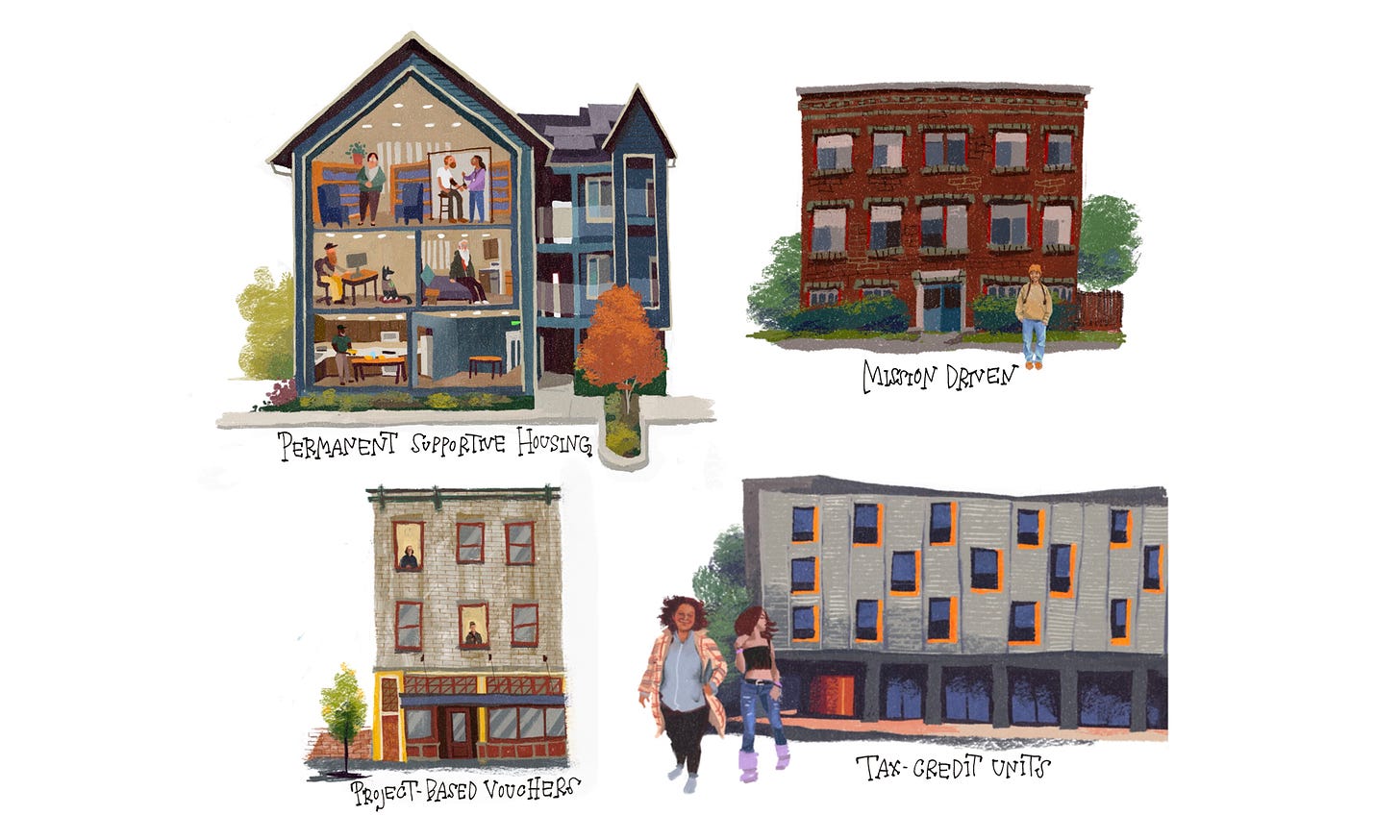
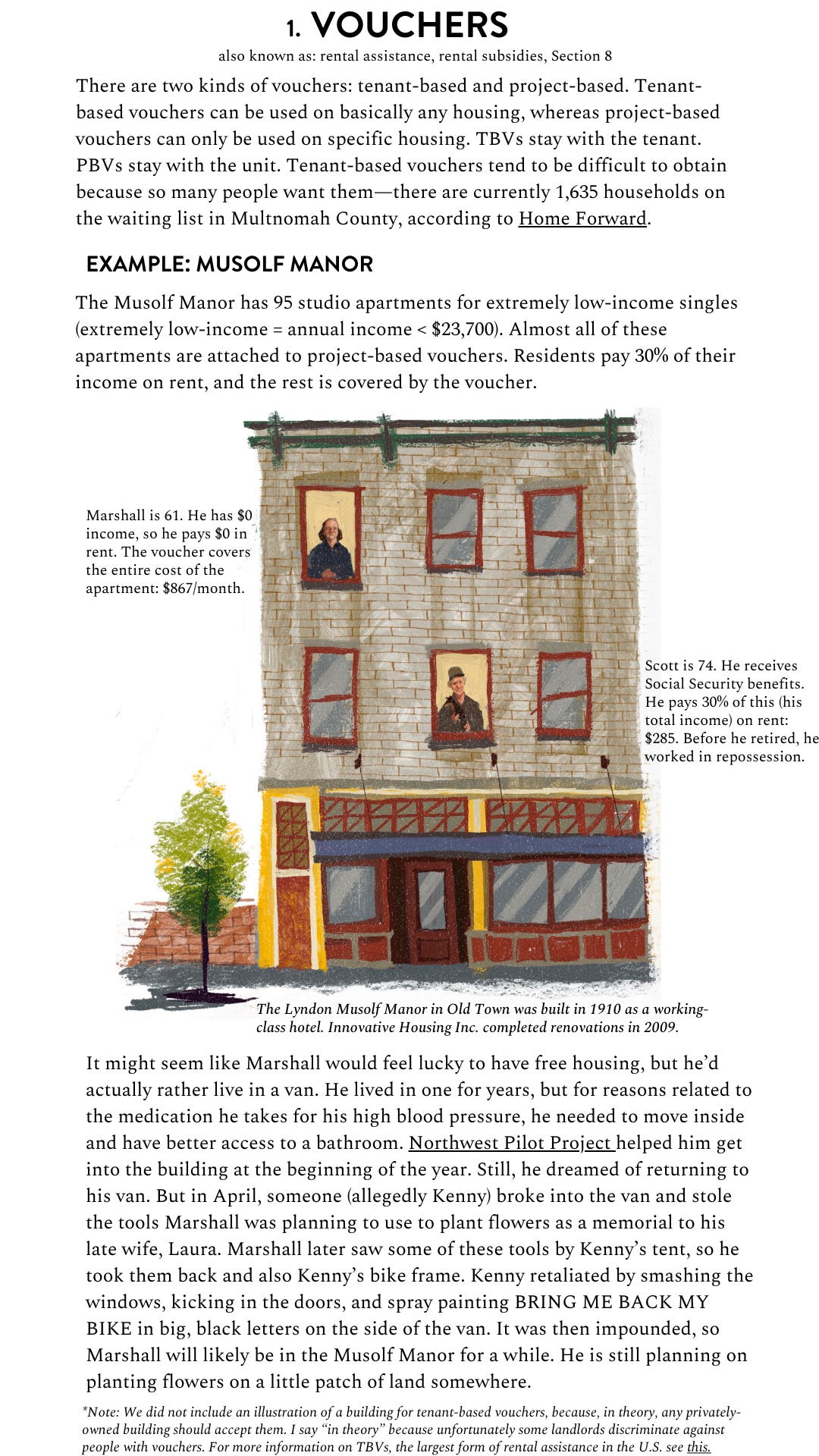
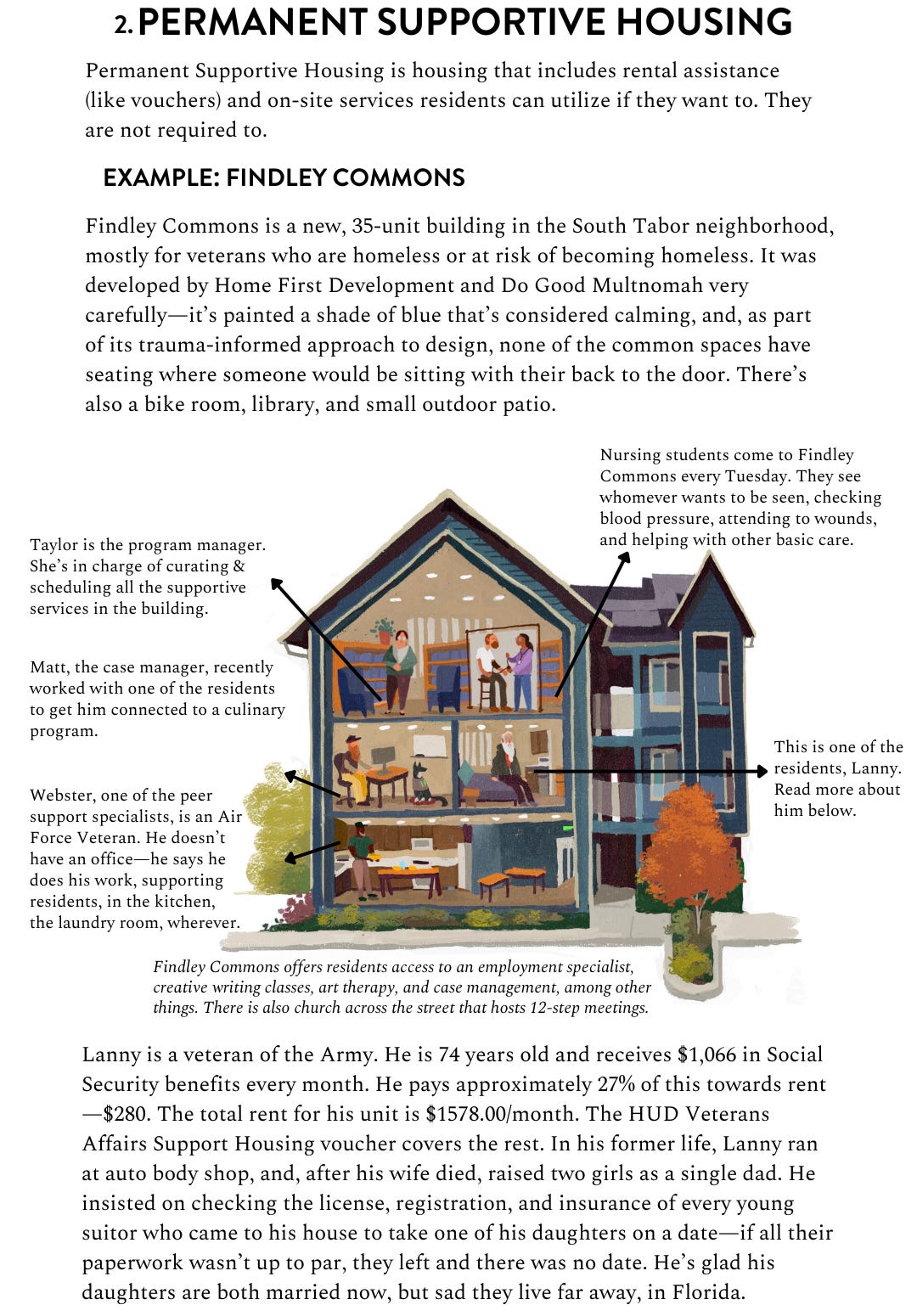
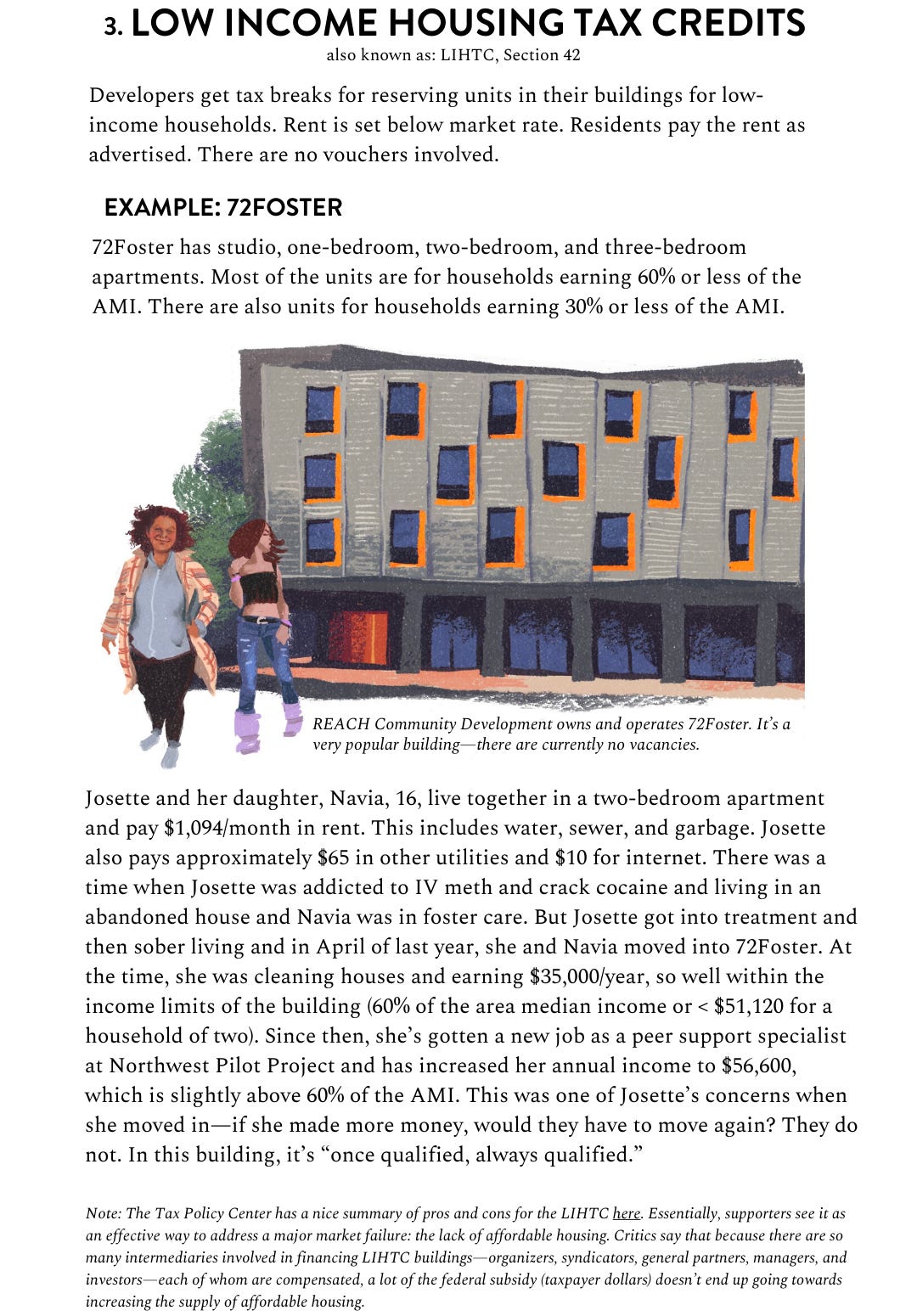
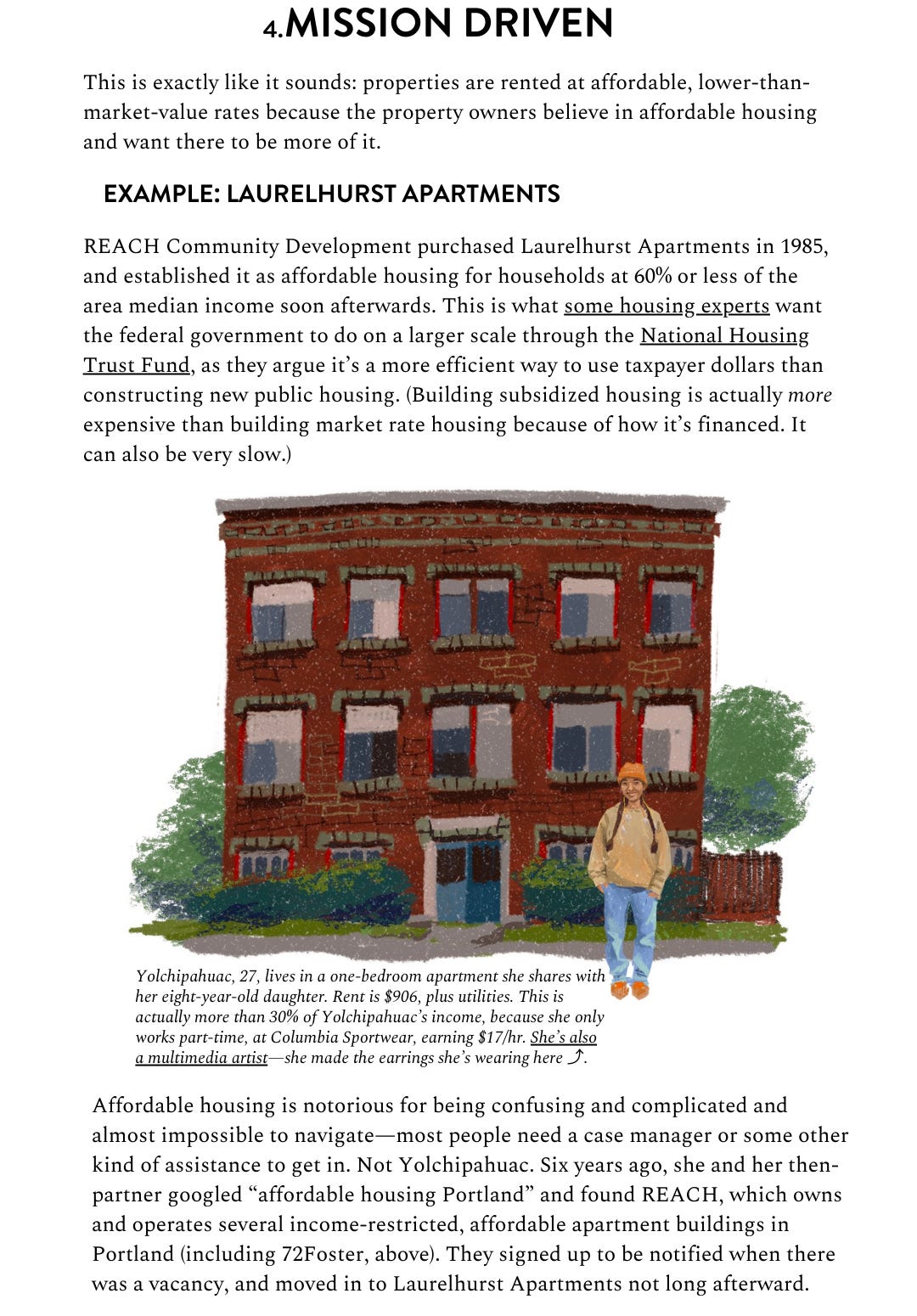
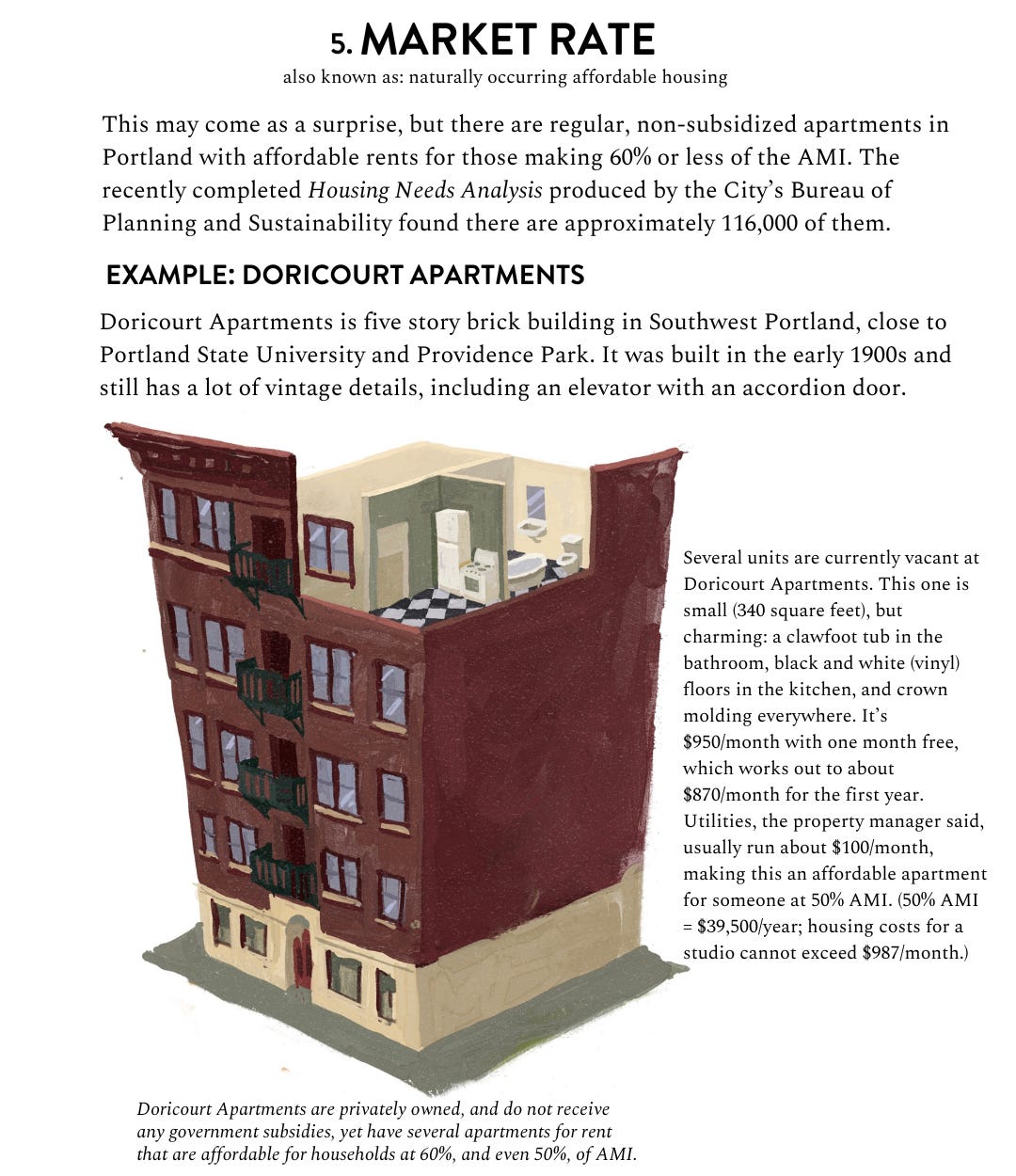

This is such a great guide. I've been working with the houseless population in SE Portland for 3 years and I'd always been a bit confused about all the different types of affordable housing... this makes it so much clearer. I'm going to refer to this in the future when someone starts talking about the type of housing they have (or are looking for). Also really interesting to know that Portland has "naturally occurring affordable housing" like the Doricourt. Does the city's Housing Needs Analysis divulge where they all are?
This is such an informative and interesting article.. thank you for sharing the human-side of this complicated topic! The clever and creative illustrations, and descriptions of real people experiencing the web of housing options in Portland, really made me think about what my community might be doing (or not doing!) to help those trying to navigate this system.. and how I might be able to learn more! Keep up the amazing work Devin!!